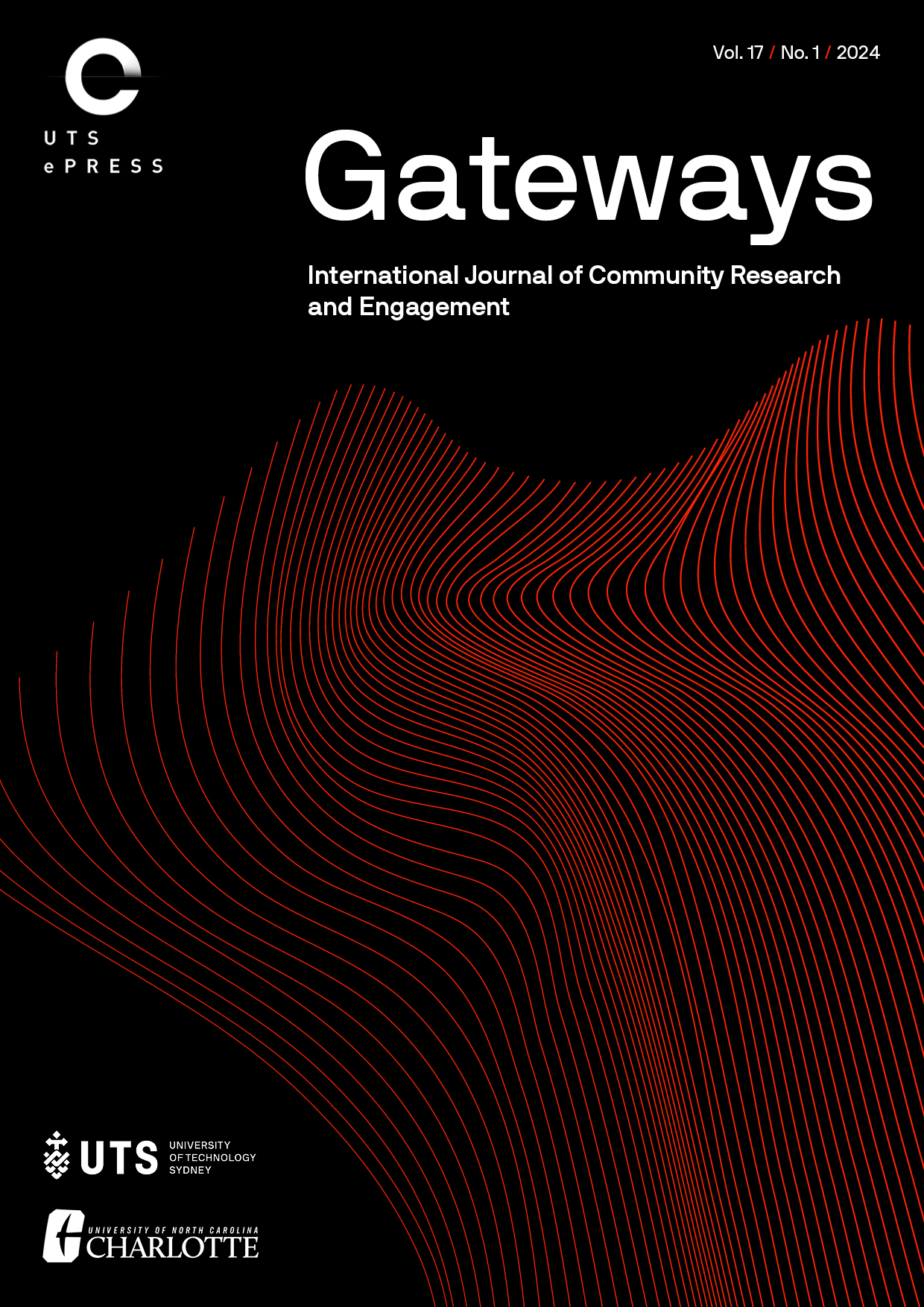Building research and evaluation within an Australian community eating disorder organisation through academic partnership: A pragmatic protocol
Main Article Content
Abstract
Eating disorders are complex mental health conditions with rising prevalence. Despite this, research and evaluation (R&E) remain under-funded, hindering translation, policy, prevention and advances in care; an equitable and responsive ecosystem of research and knowledge-sharing across the sector is needed to enhance outcomes for people and systems affected by eating disorders. Community members engage with community eating disorder organisations/services to receive guidance and support, often through innovative co-designed programs and resources. Building R&E capacity and capability within community settings is essential in capturing, leveraging and translating local knowledges, such as evaluation outcomes to research, policy, practice settings and the broader community to improve understandings, actions and outcomes. Partnerships between community service providers and academic researchers could be a way of establishing reciprocal knowledge- sharing pathways while simultaneously building internal R&E capacity/capability. The current article presents a longitudinal participatory protocol to plan for, co-design and implement R&E practices within an Australian community-based eating disorder service via an academic partnership. We present a four-stage methodological outline aiming to (a) identify the needs, experiences and feasibility of engaging in R&E in a community eating disorder context; and (b) collaboratively plan for, develop and integrate R&E practices through partnership. We will collect data through focus groups, meetings, interviews, researcher notes and questionnaires across several months. This pragmatic plan can guide future collaborative R&E building efforts within a community mental health context in ways that inform the development and scalability of sustainable, effective and efficient R&E praxis and partnerships across the eating disorder and broader mental health sector.
Article Details
Issue
Section
Authors who submit articles to this journal from 31st March 2014 for publication, agree to the following terms:
a) Authors retain copyright and grant the journal right of first publication with the work simultaneously licensed under a Creative Commons Attribution License that allows others to share and adapt the work with an acknowledgement of the work's authorship and initial publication in this journal.
b) Authors are able to enter into separate, additional contractual arrangements for the non-exclusive distribution of the journal's published version of the work (e.g., post it to an institutional repository or publish it in a book), with an acknowledgement of its initial publication in this journal.
c) Authors are permitted and encouraged to post their work online (e.g., in institutional repositories or on their website) prior to and during the submission process, as it can lead to productive exchanges, as well as earlier and greater citation of published work (See The Open Access Citation Advantage Service). Where authors include such a work in an institutional repository or on their website (ie. a copy of a work which has been published in a UTS ePRESS journal, or a pre-print or post-print version of that work), we request that they include a statement that acknowledges the UTS ePRESS publication including the name of the journal, the volume number and a web-link to the journal item.
d) Authors should be aware that the Creative Commons Attribution (CC-BY) License permits readers to share (copy and redistribute the work in any medium or format) and adapt (remix, transform, and build upon the work) for any purpose, even commercially, provided they also give appropriate credit to the work, provide a link to the license, and indicate if changes were made. They may do these things in any reasonable manner, but not in any way that suggests you or your publisher endorses their use.
For Volume 6 (2013) and before, the following copyright applied:
Articles published by UTSePress are protected by copyright which is retained by the authors who assert their moral rights. Authors control translation and reproduction rights to their works published by UTSePress. UTSePress publications are copyright and all rights are reserved worldwide. Downloads of specific portions of them are permitted for personal use only, not for commercial use or resale. Permissions to reprint or use any materials should be directed to UTSePress.
